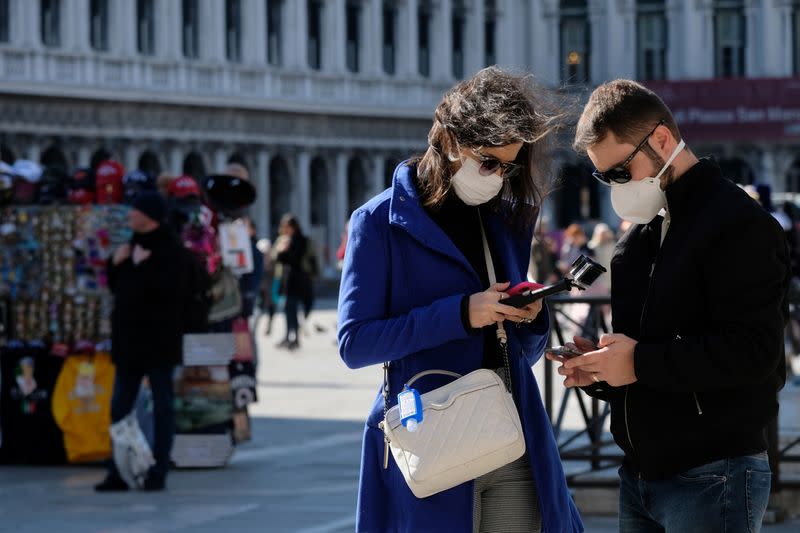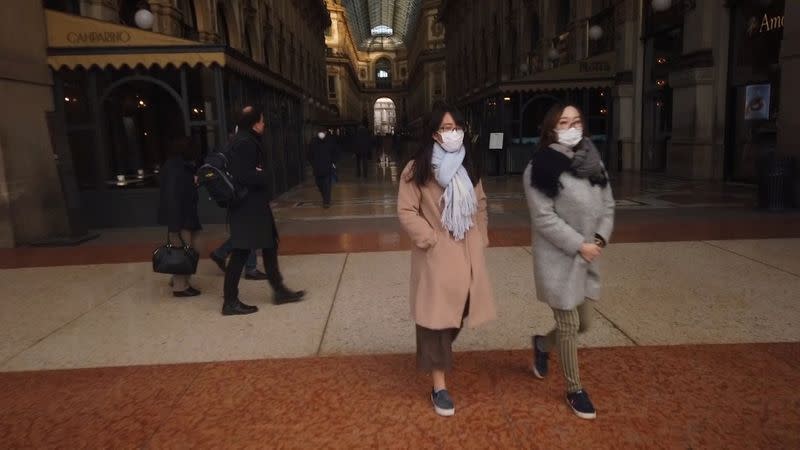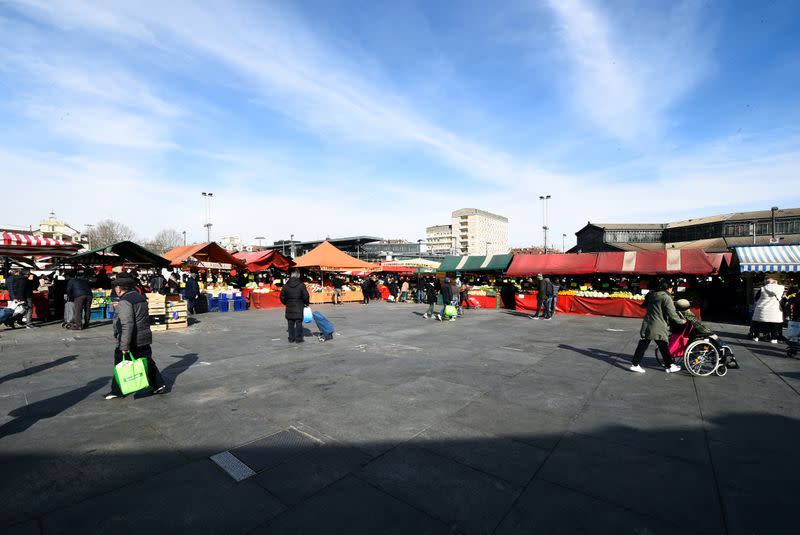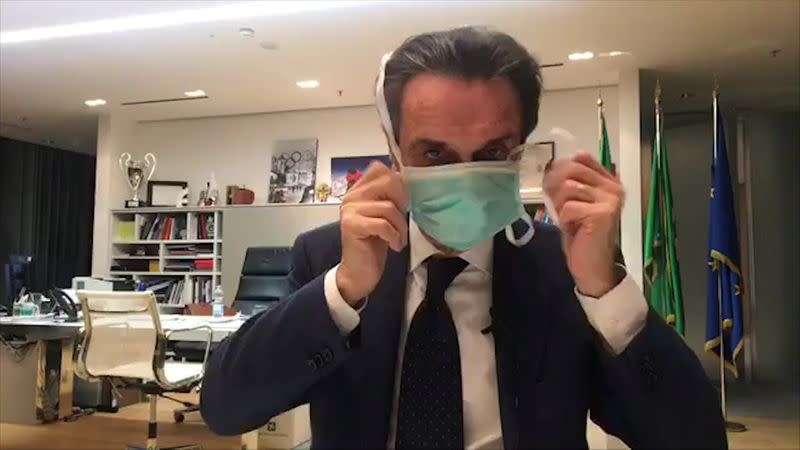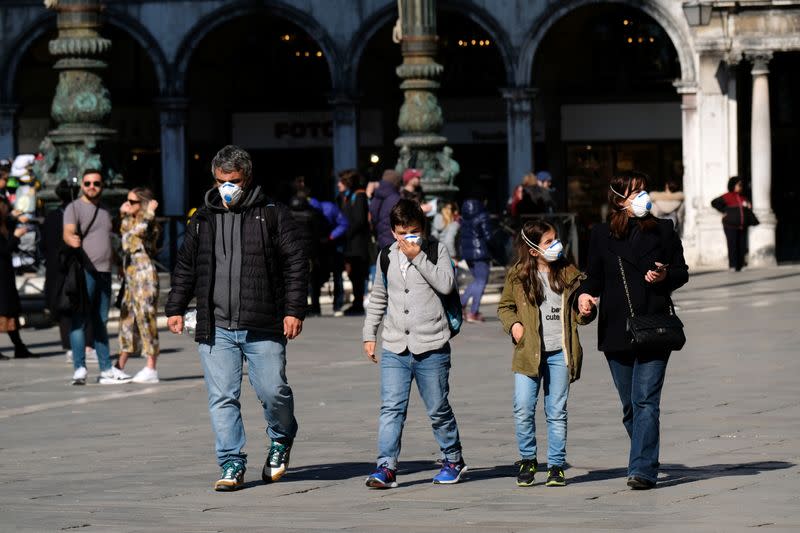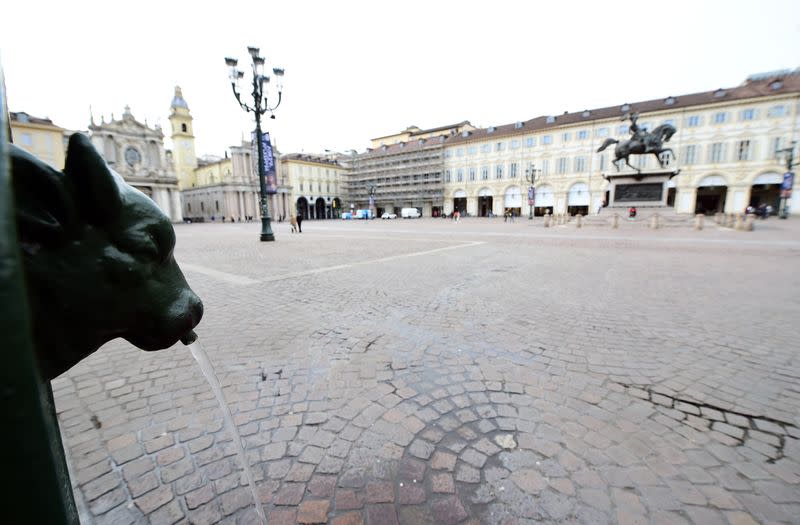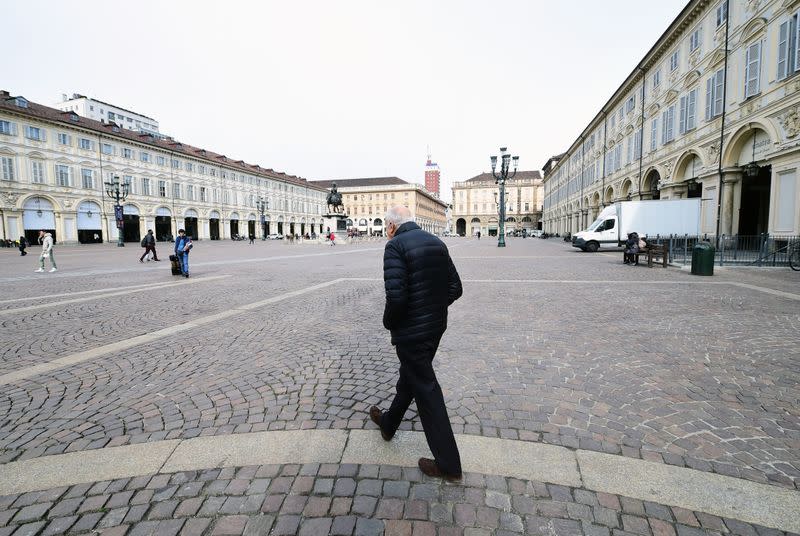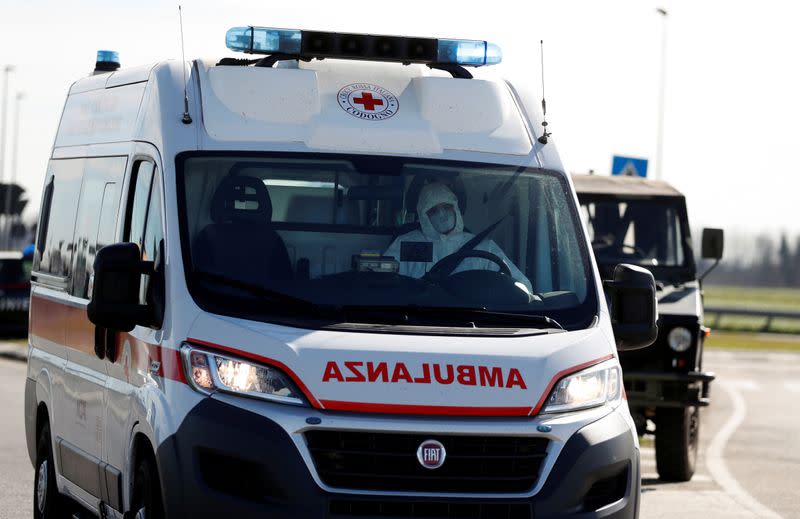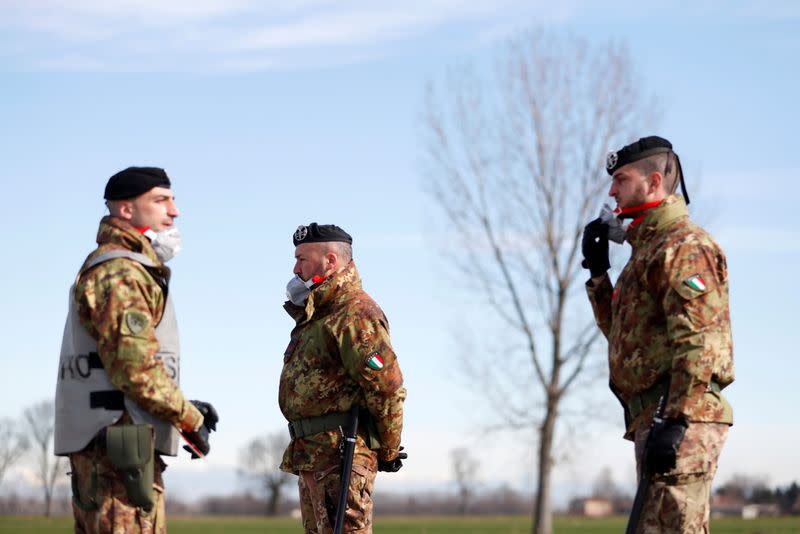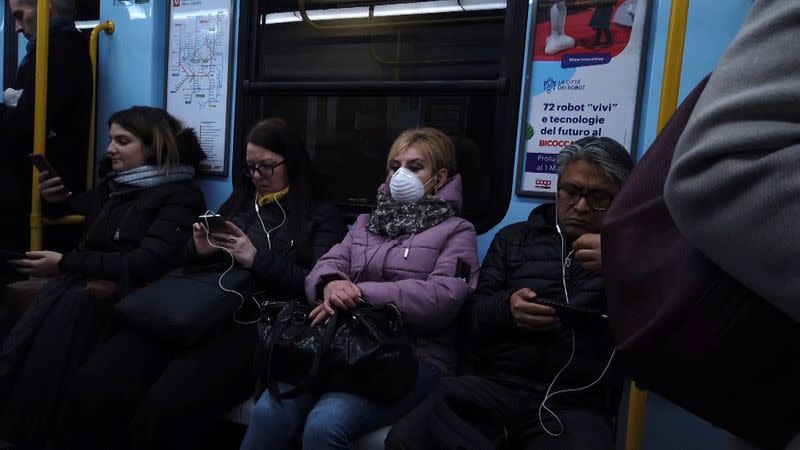Italy plays down coronavirus risk as death toll rises, cases jump
By Crispian Balmer and Gavin Jones
ROME (Reuters) - Italy's government, desperate to stave off a likely recession, played down on Thursday the gravity of an outbreak of coronavirus, the worst yet seen in Europe, saying it only impacted a tiny fraction of the country.
But even as ministers took to the airwaves with reassuring messages, officials said the death toll had risen by five from Wednesday to 17, while the number of people who tested positive for the illness increased by more than 200, to 650.
"The epidemic of misleading information will do more damage to Italy than the risk of the virus epidemic itself," Foreign Minister Luigi Di Maio told a news conference. "Only 0.1% of the country is involved."
The coronavirus continues to spread across Europe but Italy is the epicenter. In other European states for example, Germany has some 27 cases, France around 18 cases, and Spain 15.
Analysts have warned that the outbreak looks set to shunt Italy's fragile economy into its fourth recession in 12 years, with many businesses in the wealthy north close to a standstill and hotels reporting a wave of cancellations.
Bologna-based think-tank Prometeia forecast on Thursday that gross domestic product would fall for a second quarter running in the first quarter and decline by 0.3% in 2020 as a whole.
Even though the outbreak is focused on a small cluster of towns in Lombardy and neighboring Veneto, the local authorities have banned public events across the regions and closed schools, universities, cinemas, theaters and museums.
Italian authorities now seem concerned that their draconian measures to halt the spread of the virus, including widespread testing of people who had no symptoms, will take a heavy toll on the fragile economy.
World Health Organisation official Walter Ricciardi said on Thursday Italy's large-scale testing in affected areas was not in line with WHO guidelines followed in other countries.
A growing list of countries around the world have reported cases of coronavirus in the last two days because of contacts with Italy. Israel said on Thursday it was barring entry to non-Israelis who had visited Italy in the past two weeks.
Italian health officials stressed that despite the rising number of cases, the number that had been hospitalized and fully recovered had risen to 45.
QUARANTINE
In a setback to efforts to present a healthy face to the world, the governor of the region of Lombardy, Attilio Fontana, took to Facebook to announce he had placed himself in quarantine after one of his staff came down with the disease.
"For now I don't have any type of infection so I can continue to work ... but for two weeks I will try to live in a sort of self-isolation," he said, donning a surgical mask.
The previous day medical experts in Italy had stressed that such masks served no useful function for those not infected.
In another case in Milan, professional services firm Ernst & Young said a staff member had tested positive and they had instructed their employees in northern Italy to work from home.
A significant spread of the outbreak to Italy's financial capital, with a population of 1.4 million people, has been one of the authorities' main fears.
The right-wing opposition League party has accused Prime Minister Giuseppe Conte of mishandling the crisis and called on Thursday for the creation of a government of national unity.
"The important thing is not to sink. With Conte, Italy is sinking. We are willing to row in a lifeboat for the time strictly necessary to return to democratic normality," League leader Matteo Salvini told reporters.
"This government team is not fit to handle normality, let alone an emergency."
The government dismissed the attack and vowed to forge ahead to overcome one of the most serious crises Italy has had to deal with for years.
Asked on Thursday if it wasn't time for a unity government, Conte said: "We already have one. The government is united for the nation."
(Additional reporting by Angelo Amante, Elvira Pollina, Stephen Jewkes and Giselda Vagnoni; Editing by Peter Graff and Alexandra Hudson)
